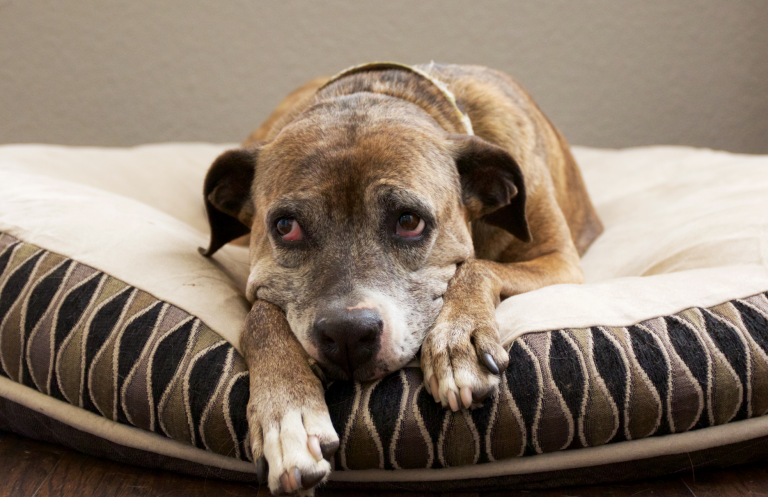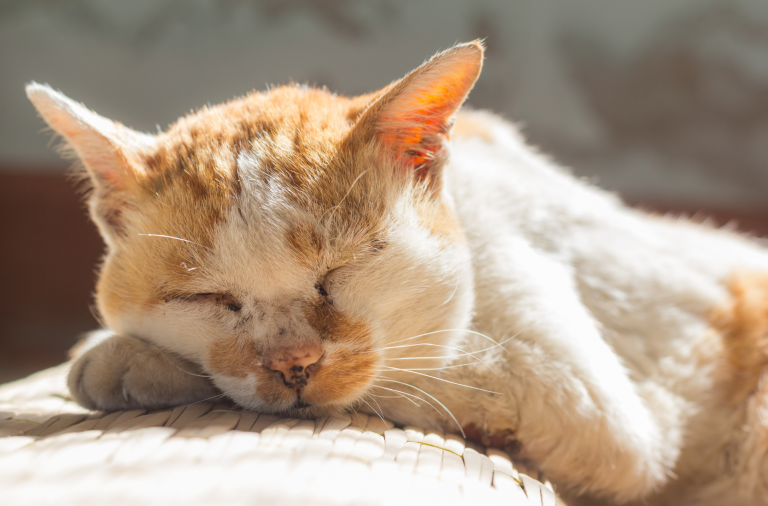Just like humans, a pet’s health care requirements will change as they get older. They will require more regular check ups to ensure problems associated with ageing are managed correctly. Their nutritional and exercise regimes will need to be adjusted. And some diseases may become more common. At Melton Family Vets we believe that preventative care is key to a happy and healthy lifestyle.

Generally, the larger the animal, the shorter the lifespan. However, there are plenty of variables including breed, lifestyle and diet which can affect the lifespan of a pet. The average lifespan for a dog is 12 years old, and for a cat it is 14 years. Because animals age faster than humans, even an extra year of age can make significant differences to your pet’s health requirements.
Some of the effects of ageing in pets are noticeable such as reduced activity and hearing or vision loss. You may also notice restricted movement in your pet due to arthritic pain. Other effects may not be visible and are much more serious, but also preventable, including heart disease, kidney disease or dental disease. Ensuring these preventative illnesses are successfully detected and managed is the secret to a longer and healthier life for your pet.
As your cat or dog gets older their nutritional requirements will change. Like humans, their metabolic rate and exercise levels tend to drop in later years, so it is important to monitor their diet carefully to ensure they do not start to gain weight. Overweight or obese animals are at high risk of a variety of conditions including diabetes, heart disease and osteoarthritis. And it is much easier to maintain a healthy weight in your pet, then to reduce weight in an overweight animal. We recommend choosing a food which has been especially designed for seniors and which contains higher levels of antioxidants, plus the types of vitamins and minerals an older pet needs. Ask one of our friendly vets to recommend a specific brand and then introduce the new food slowly by mixing it with your pet’s previous food until they are used to it.
Although all animals will develop a degree of arthritic change as they get older, these changes will be particularly pronounced in larger breeds and overweight animals. As your pet ages, consider providing softer, warmer bedding that will keep them off the cold, hard floor. Even though your pet may move more slowly, exercise is still essential, so don’t skimp on the daily walk! You might just need to slow it down or reduce the distance.
As they get older you may start noticing lumps and bumps on your pet. Although many are harmless these should always be checked out by our vets. Of particular cause for concern are lumps which grow or change rapidly and those which are in an uncomfortable place such as the eye, anus or armpit.

Coughing, reduced capacity for exercise and a swollen abdomen can all be evidence of heart disease. Many dog breeds have ongoing heart problems and murmurs which should be closely monitored throughout their lives, but particularly as they get older. Discuss the likelihood of risks with one of our vets so that you can be prepared and have a health plan in place to help minimise problems which may occur.
Excessive drinking is also a sign to watch out for as it can be an indication of many diseases. In older cats, kidney disease, diabetes and hyperthyroidism are quite common and can also cause weight loss. Early detection and treatment are the key, which is why we recommend increasing the frequency of check ups for your pet as they age.
Every animal is different so there is no right or wrong answer. However, at a minimum Melton Family Vets recommend a bi-annual check up so we can administer vaccination boosters and keep an eye on the health and wellbeing of your pet. As pet’s age, or if health issues arise, we may recommend you bring them in more often to better detect and manage changes. Our vets and nurses will be happy to discuss preventative health care plans with you at any time – so you can be prepared to look after your pet in their later years.
© 2020 All rights reserved